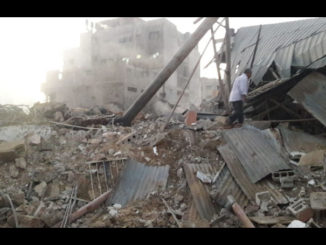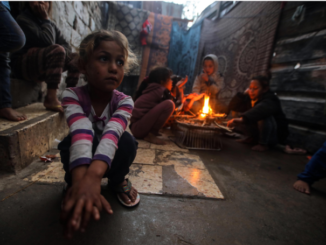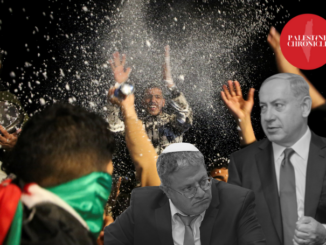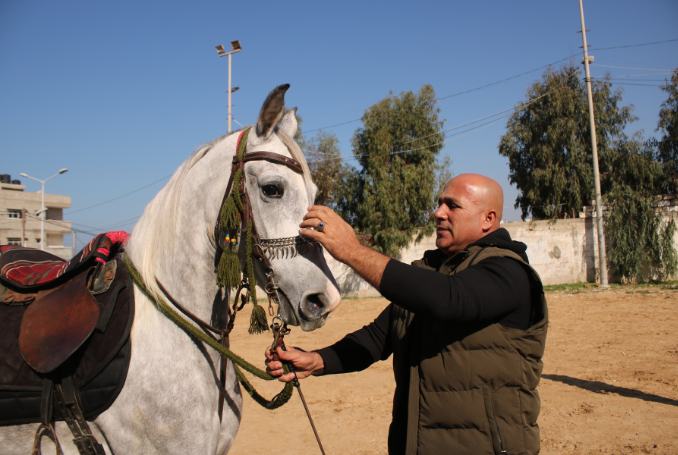
In the morning refreshing breeze, Ameed Miqdad looked busy as he prepared his two horses for their regular training session.
Escorting the beautiful horses through the narrow alleys of the overcrowded Al-Shati refugee camp, toward the playground where the training session usually takes place, the children and neighbors were excited as they looked at the horses.
Ameed has always been passionate about horses since he was a child. Today, at the age of 45, he still has a dream that he cannot achieve.
Ameed is an expert in horse dressage with more than 15 years of experience and he is one of the few horse trainers in the besieged Gaza Strip. For him and his family, raising horses is a cherished part of their family’s history.
From his early childhood, Ameed found joy in helping his father and grandfather in taking care of the family’s horses and accompanying them on horse riding trips.
“Horses have always been my best friends. Growing up around horses has taught me how to understand their personalities and behaviors and how to deal with them,” Ameed told The Palestine Chronicle.
“I wanted to turn my passion into a career and become a professional horse trainer,” he added.
Ameed was mostly self-taught.
In his constant search for unique and modern techniques of horse dressage, he learned from TV and later, from social media platforms.
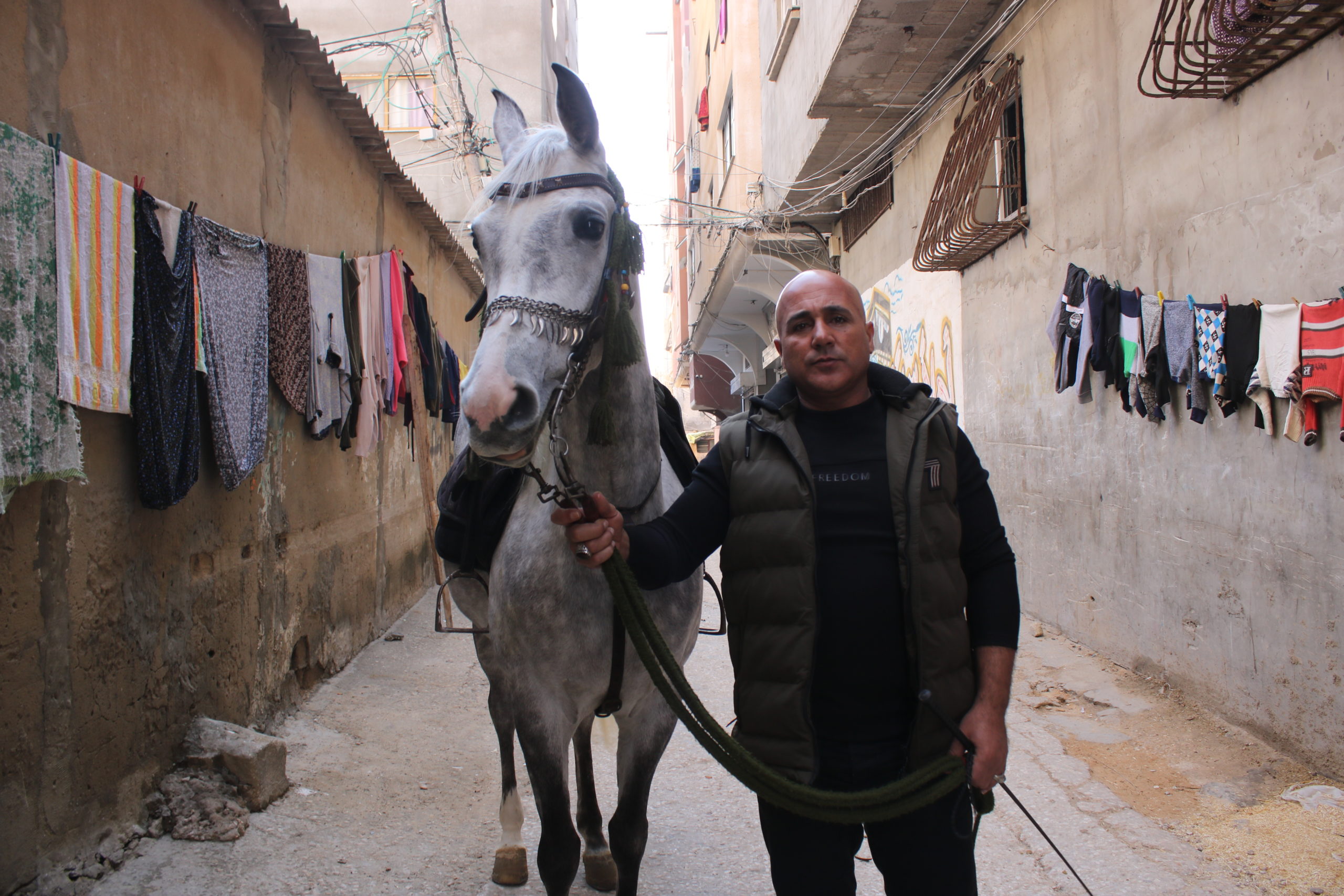
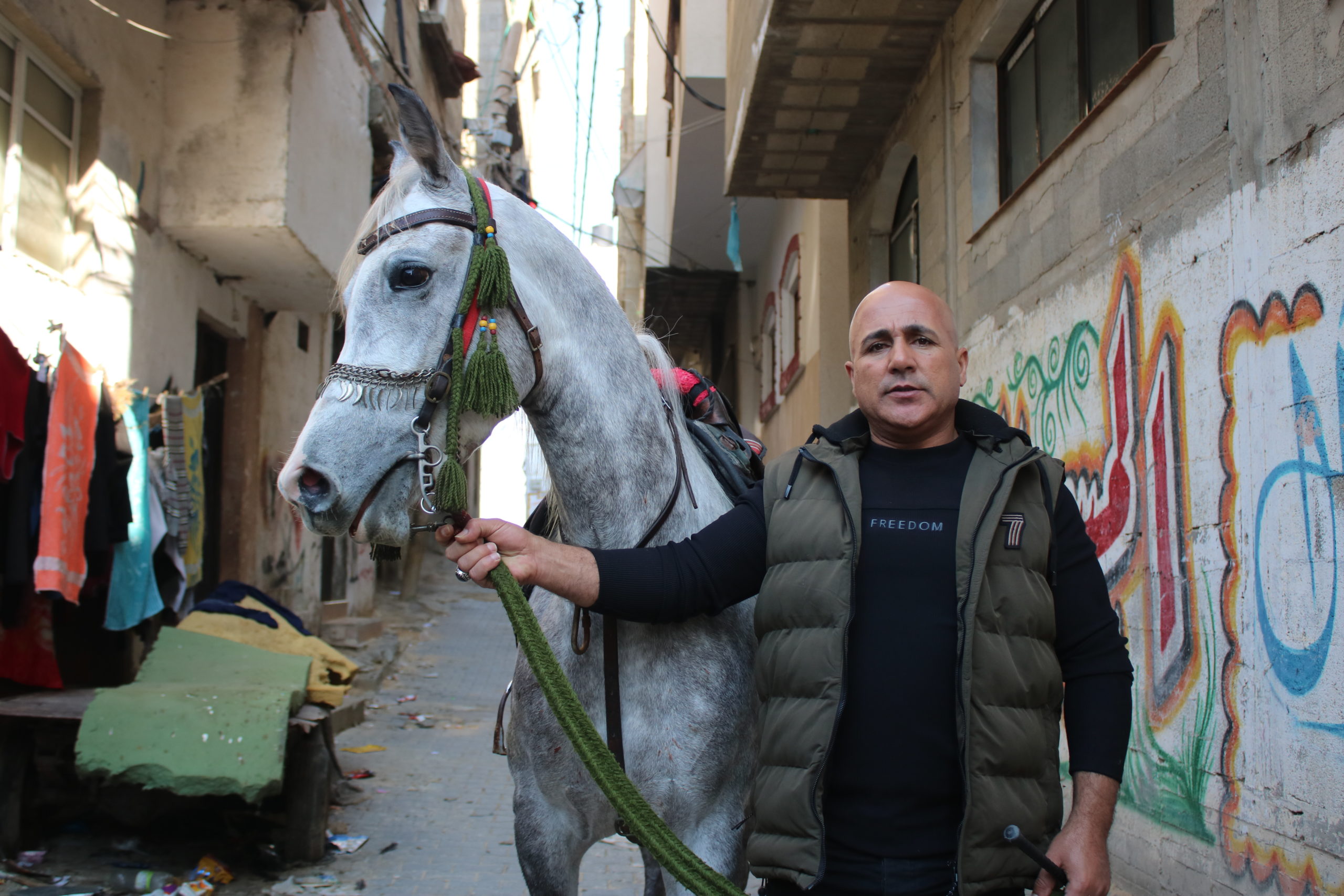
Ameed used to watch horse dressage shows and competitions on sports channels to learn new skills and movements and then try them out with his horses.
He also constantly communicates with trainers and horse dressage experts from other countries on social media to learn from their experiences and keep up with the latest updates.
“I wish I could travel to fulfill my passion and get professional training abroad, but I can’t, due to the Israeli blockade of the Gaza Strip,” he said.
Our Cultural Heritage
Learning about horse dressage was not the only challenge in Ameed’s career.
According to Ameed, training horses to perform dressage skills and moves is not a simple process. It requires the efforts of three trainers who work with the horse for several months or even more than a year. It also requires a special set of training equipment, which is not available in Gaza due to the blockade imposed on the Gaza Strip since 2006.
Ameed and his assistants. Zakaria al-Nono and Zaki Abu Ryala tried to craft some equipment locally, but they still lack many of the needed accessories.
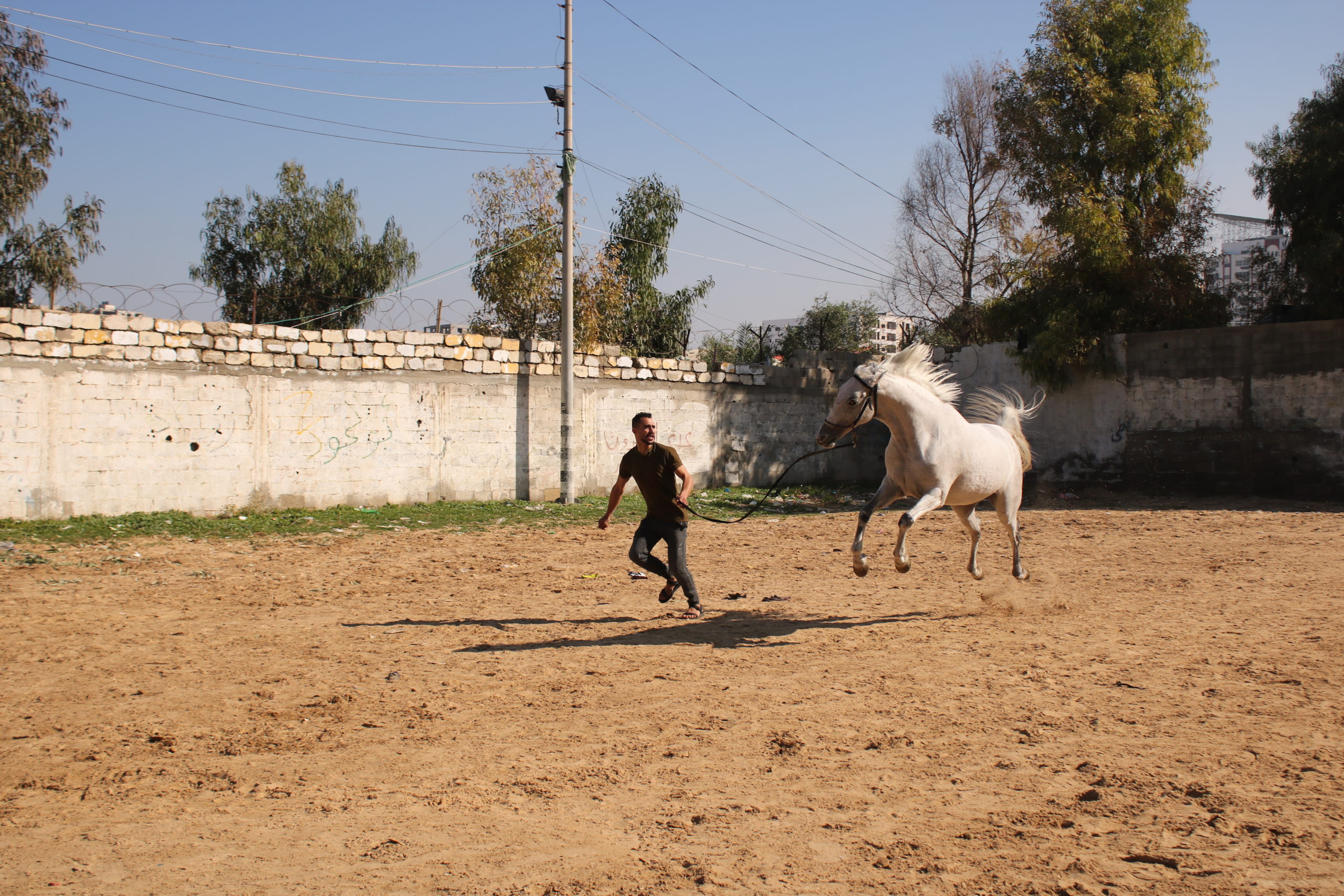
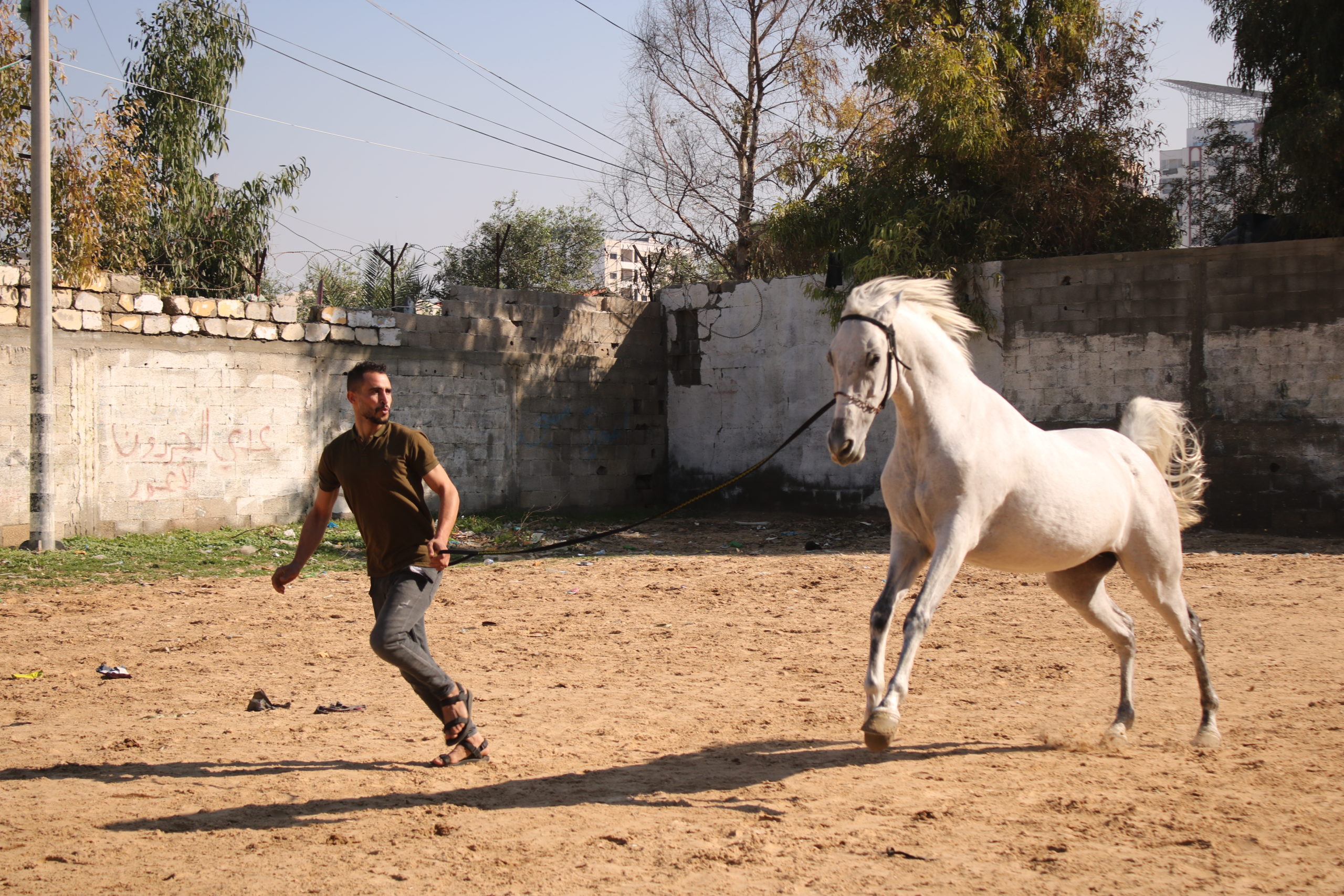
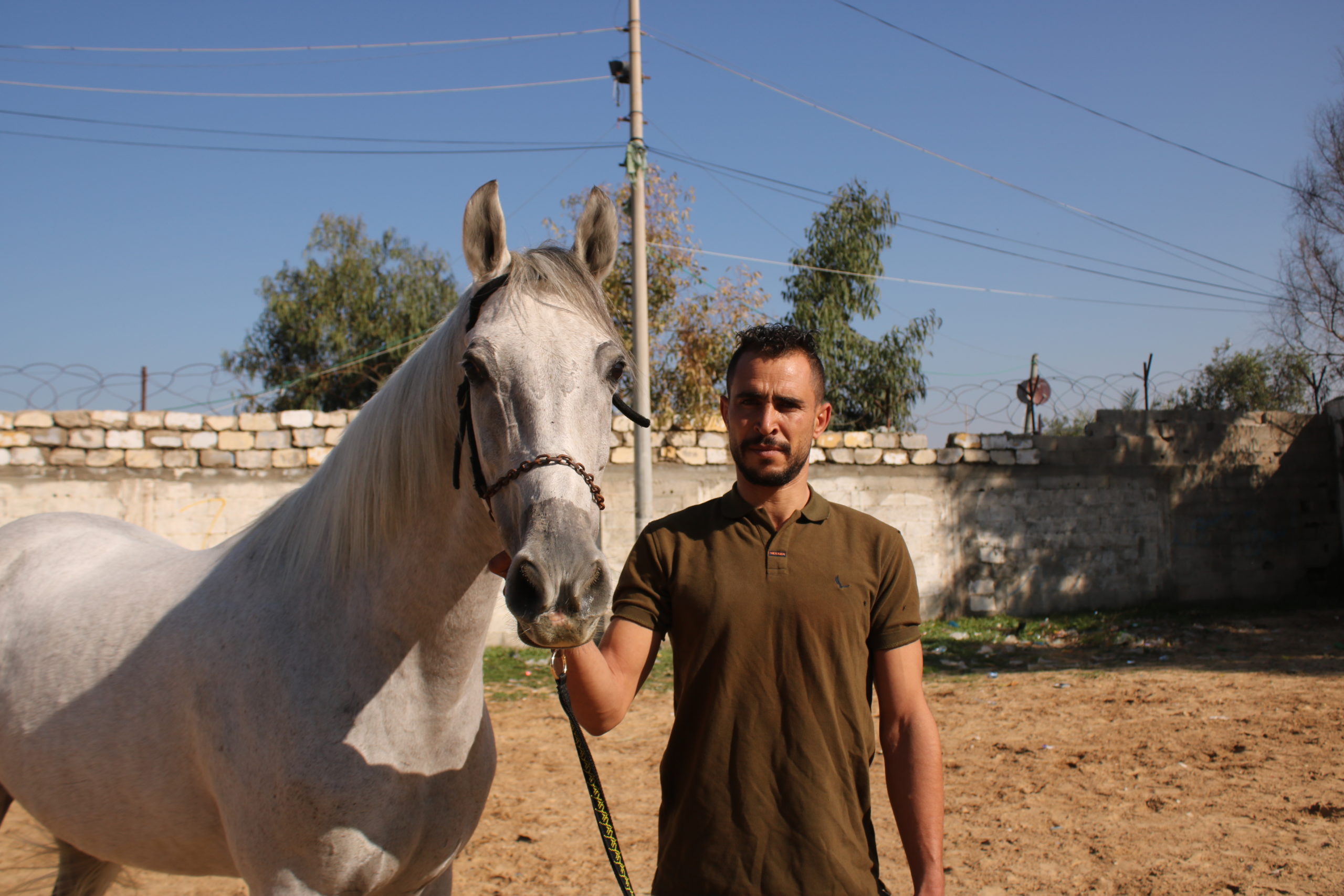
“The Israeli occupation restricts all the aspects of our lives in one way or another. Despite this, all we have is the love for our horses and we will do our best to keep the sport alive,” Ameed said.
In addition to being an international sport, horse dressage is considered an integral part of the overall Palestinian cultural heritage.
Horse exhibitions have always been part of Palestinian weddings and ceremonies.
For Ameed, performing dressage shows at weddings is one of the most exciting things in his career.
“I feel very happy when people at weddings enjoy my performances and ask me questions about dressage.”
“I am proud to play a role in preserving this precious Palestinian tradition,” he continued.
Ameed and his two beautiful Arabian horses, Deba and Dalal do not only perform at wedding ceremonies.
This great team has also excelled in local horse dressage competitions.
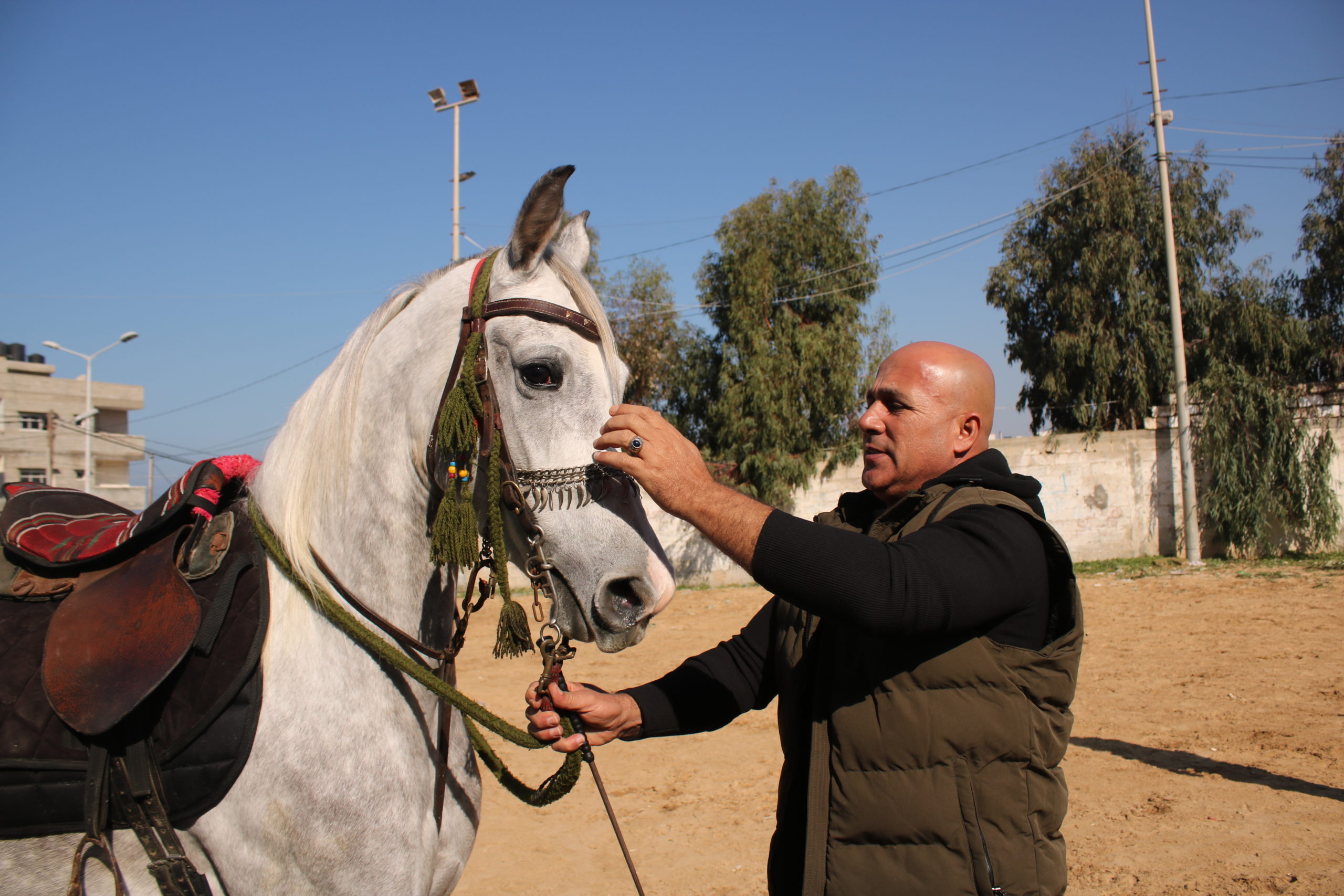
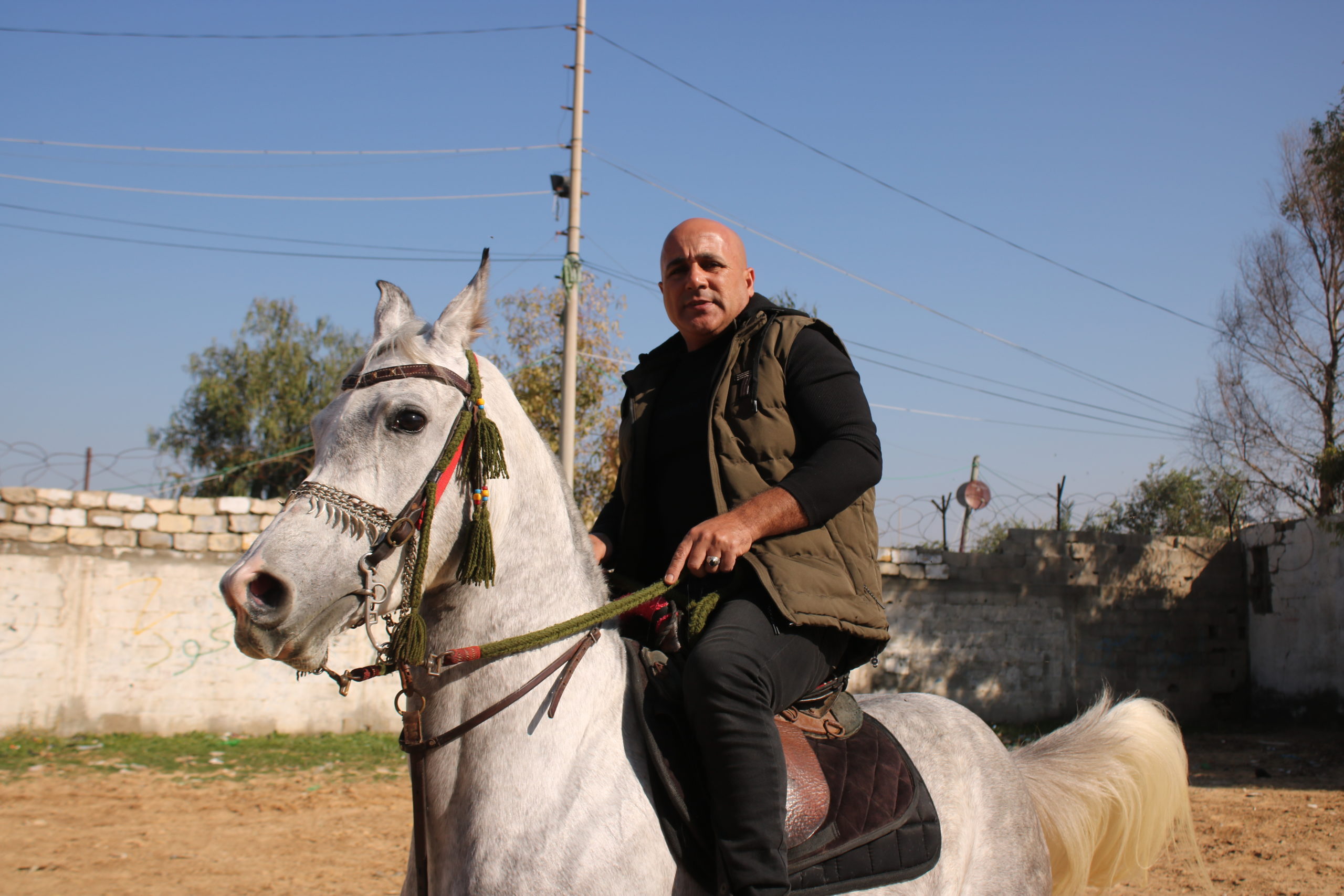
In November 2022, The Palestinian Equestrian Federation (PEF) organized a local competition for horse dressage and horse beauty in which Ameed and the beautiful Dalal achieved a sweeping victory winning first place in the rally.
The cherished victory has evoked long-standing aspirations in Ameed’s heart.
“I was excited about my victory, but I am still yearning to cross Gaza’s borders with my horses and compete in international competitions. Israeli restrictions have made it impossible for this dream to come true,” Ameed said.
Horses without Rights
One of the prerequisites for participating in any international horse competition is that the horse be registered with the International Equine Organization such as ECAHO and WAHO.
Registration is an important process for the horse, as it documents basic information about the animal, such as the breed, bloodline, and family tree, and allows the horse to obtain identification papers.
Normally, horse registration is not a big concern for horse owners as it is available all over the world, but this is not the case in Palestine.
According to Abdulaziz Abo Sharia, a member of the Palestinian Equestrian Federation, horses born in the Gaza Strip are denied registration even though they are of pure bloodline and born to a sire and dam (father and mother) registered in international organizations.
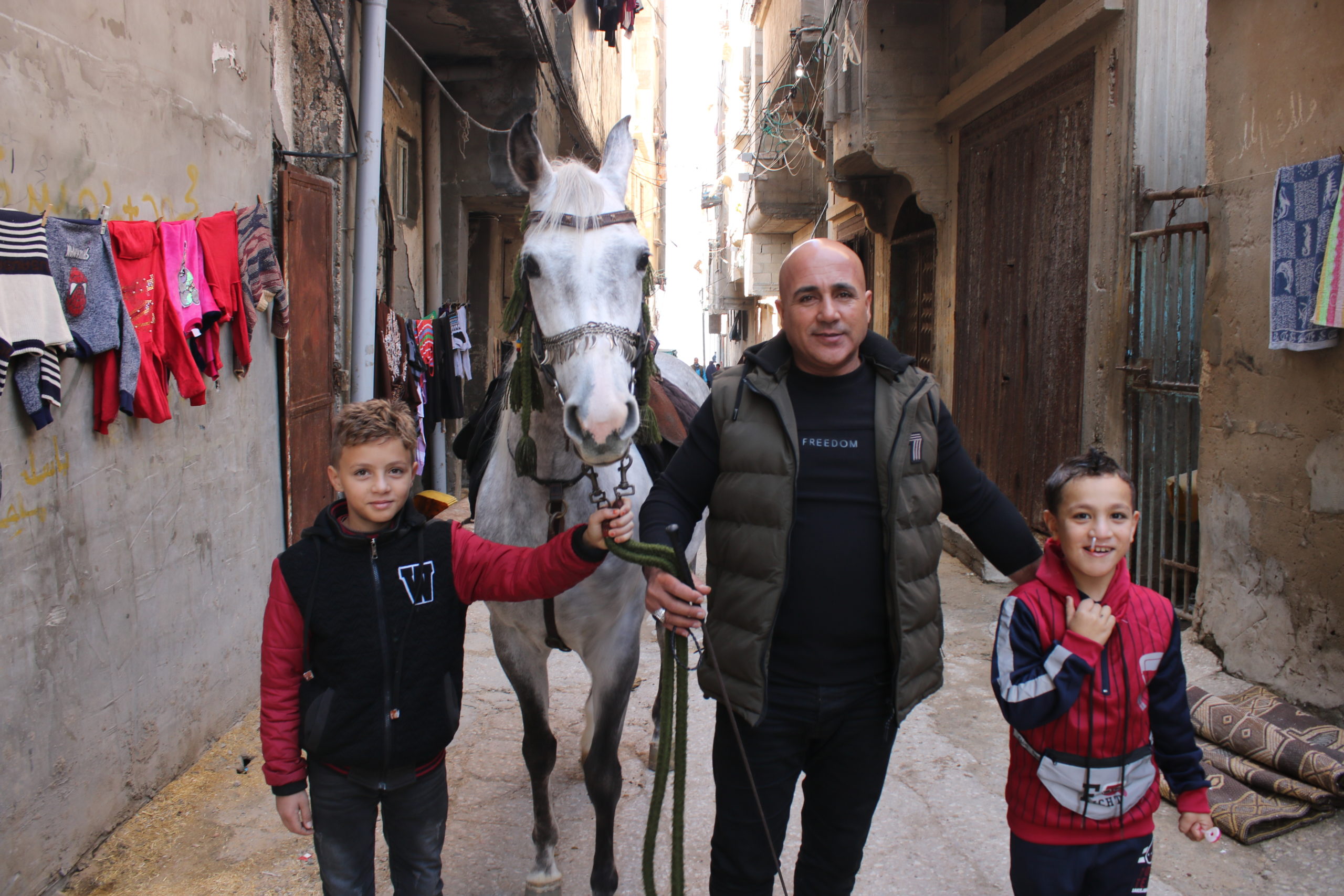
The main reason for this is that there are no agents or representatives for international equine organizations such as ECAHO in Palestine even though Palestine is a member of ECAHO and FEI.
Over the past years, there have been many attempts by the Palestinian Equestrian Federation and horse owners to register horses born in the Gaza Strip by ECAHO agents in Israel, but the Israeli authorities have categorically refused as they refuse to grant permits for horses to enter Israel or travel to any country.
Therefore, no horse was registered from the Gaza Strip.
According to Abo Sharia, these Israeli measures have a huge negative impact on the horses in the Gaza Strip. For example, unregistered horses cannot participate in regional and international competitions. Since they are not registered, owners cannot prove the purity of their horse’s bloodline, which is very important for Arabian horses.
Moreover, the value of unregistered horses decreases dramatically, which causes a huge loss for horse owners in the Gaza Strip.
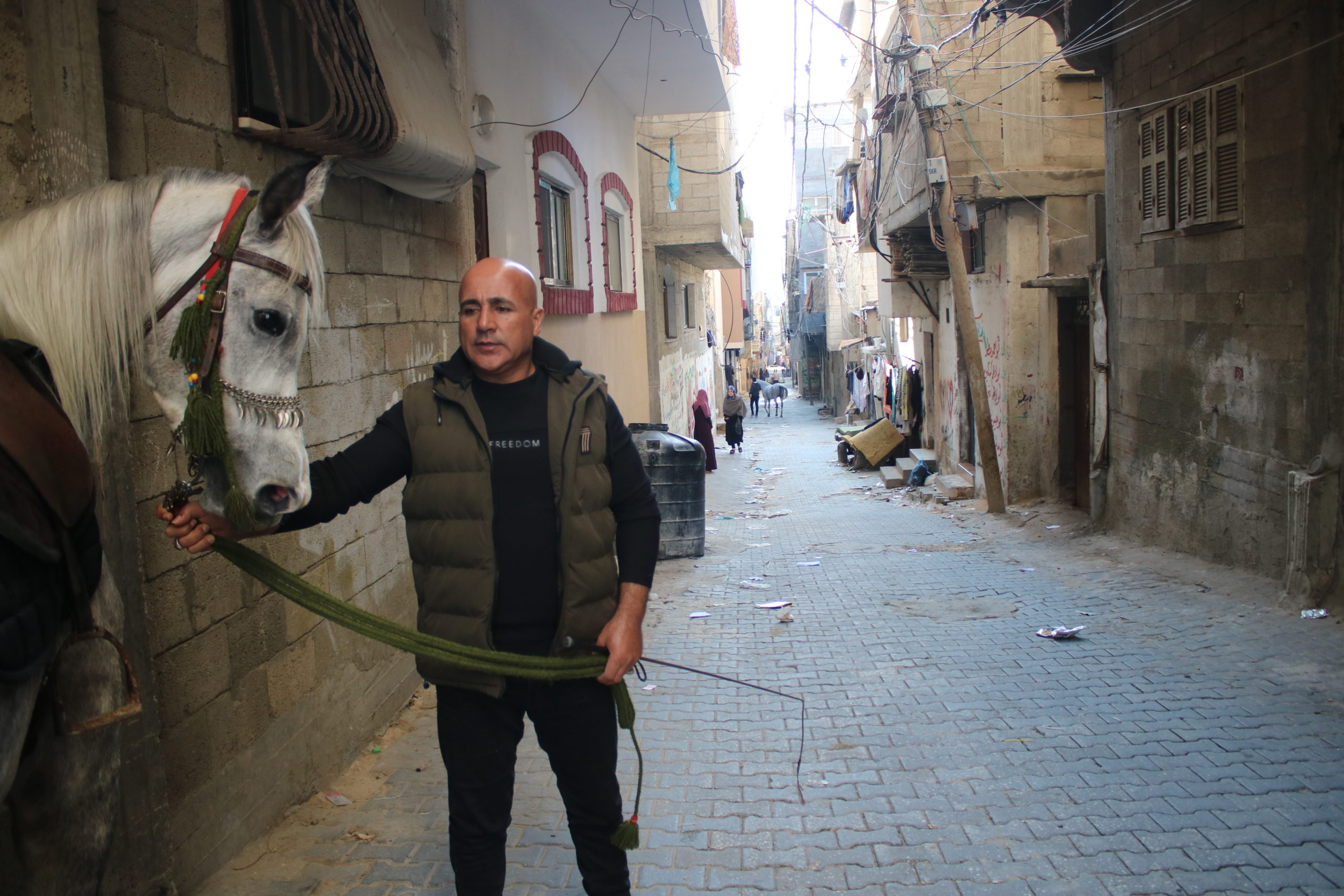
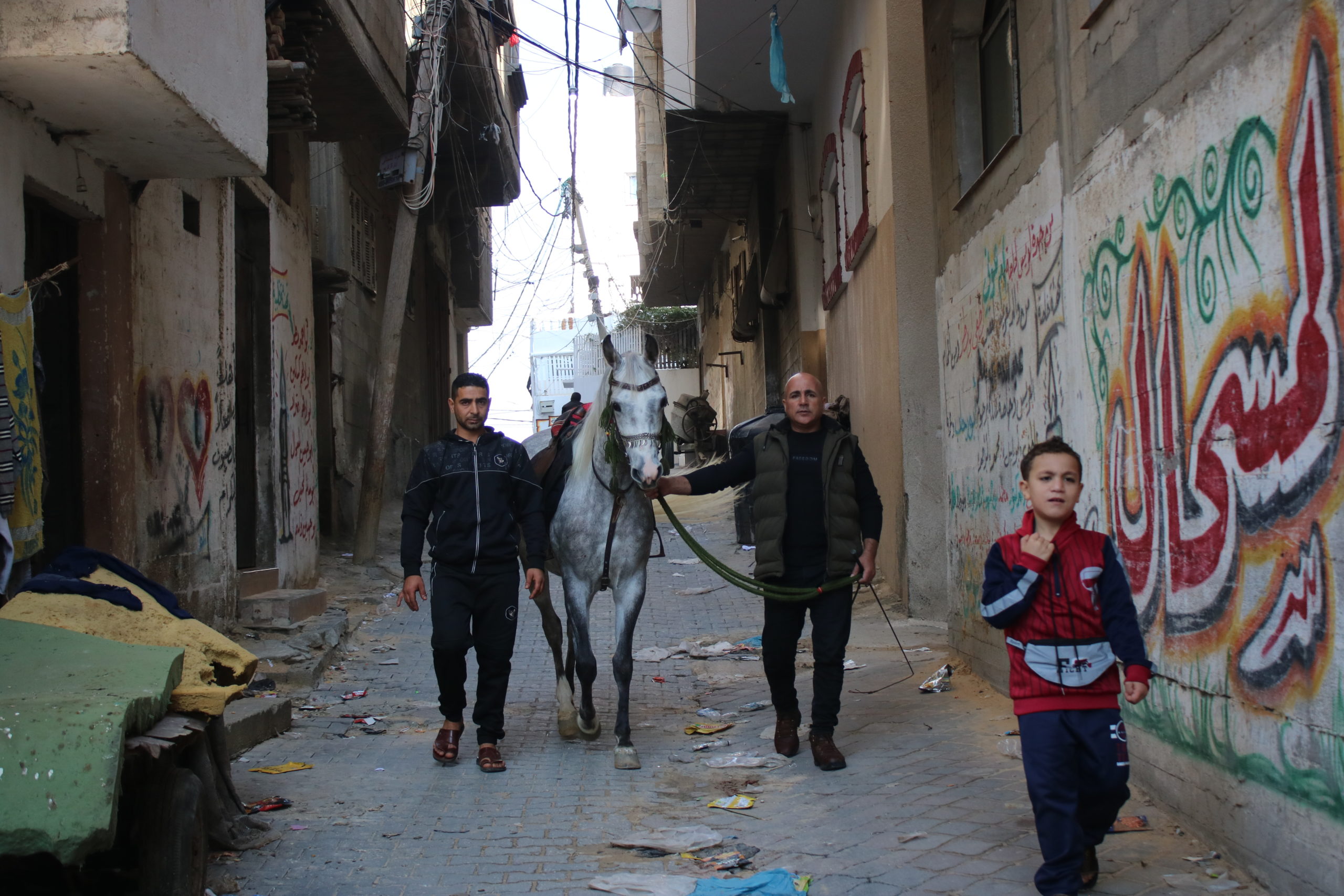
According to Abo Sharia, some Arabian horses in the Gaza Strip may be worth more than a million dollars, but their price drops to less than 10 thousand dollars because they are not registered.
“Horses here in Gaza pay a heavy price with no fault of their own. For Israeli occupation, being a horse in Gaza is illegal,” Ameed added.
There are a small number of registered horses in Gaza that were imported from Israel. However, this is a long and complex process.
According to Ahmed Abdel-Aal, trainer and board member of Al-Jawad Equestrian Club, most of the horses that are imported from Israel are already retired or suffering from health problems.
Also, importing horses from Israel is very expensive as the import expenses cost as much as the price of a horse, and sometimes even more.
Horses without Medicine
Since Israel imposed the blockade on the Gaza Strip in 2006, there has been a severe shortage of medicines and medical equipment for horses.
This has not only affected the horses’ ability to participate in international competitions but has also posed a great threat to the very lives of horses in Gaza.
According to Abdulaziz Abu Sharia, the Israeli authorities prevented the entry of many types of horse medicines, vaccinations, and medical equipment. This leads to poor health conditions for horses in the Gaza Strip and to the death of many horses in the past years.
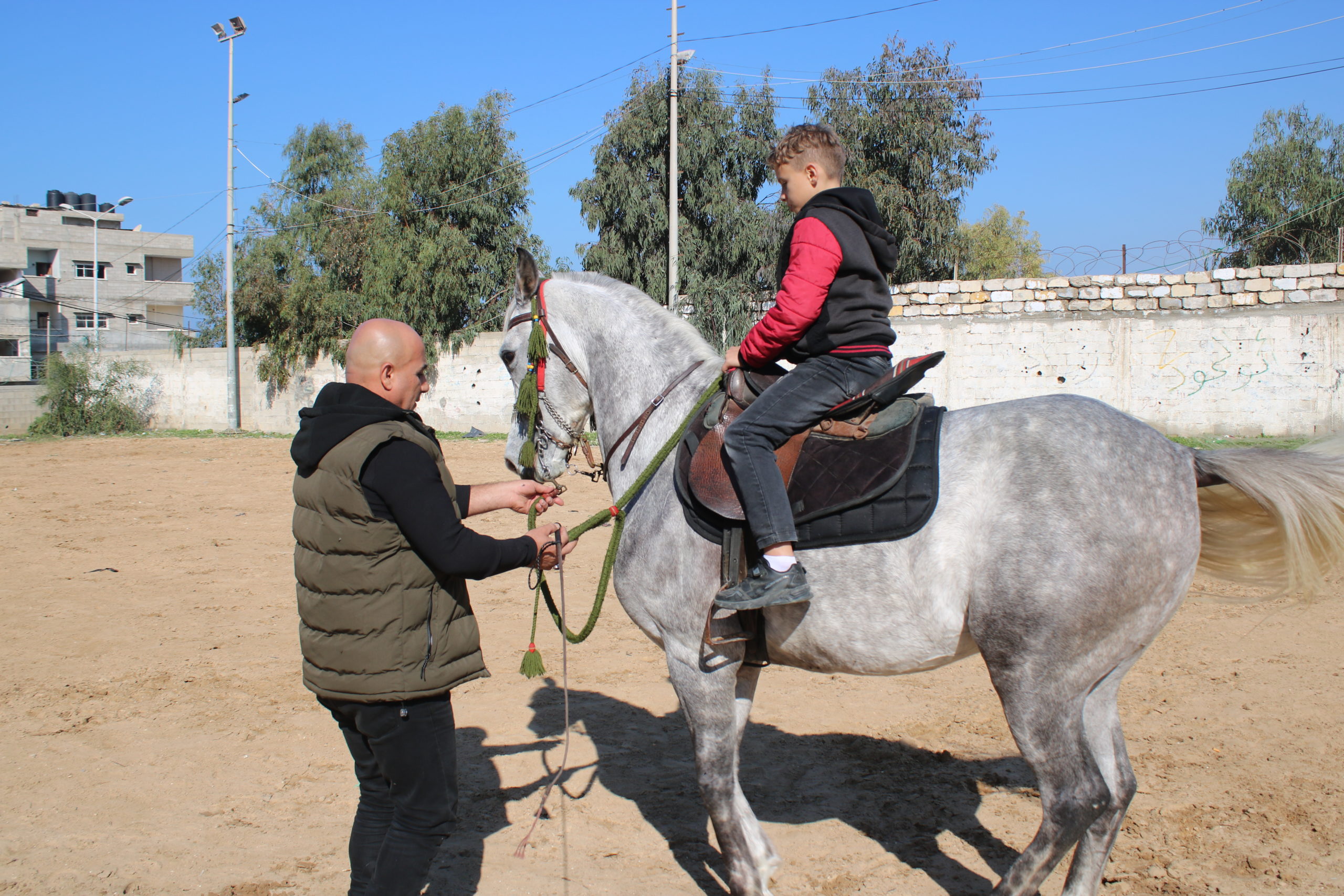
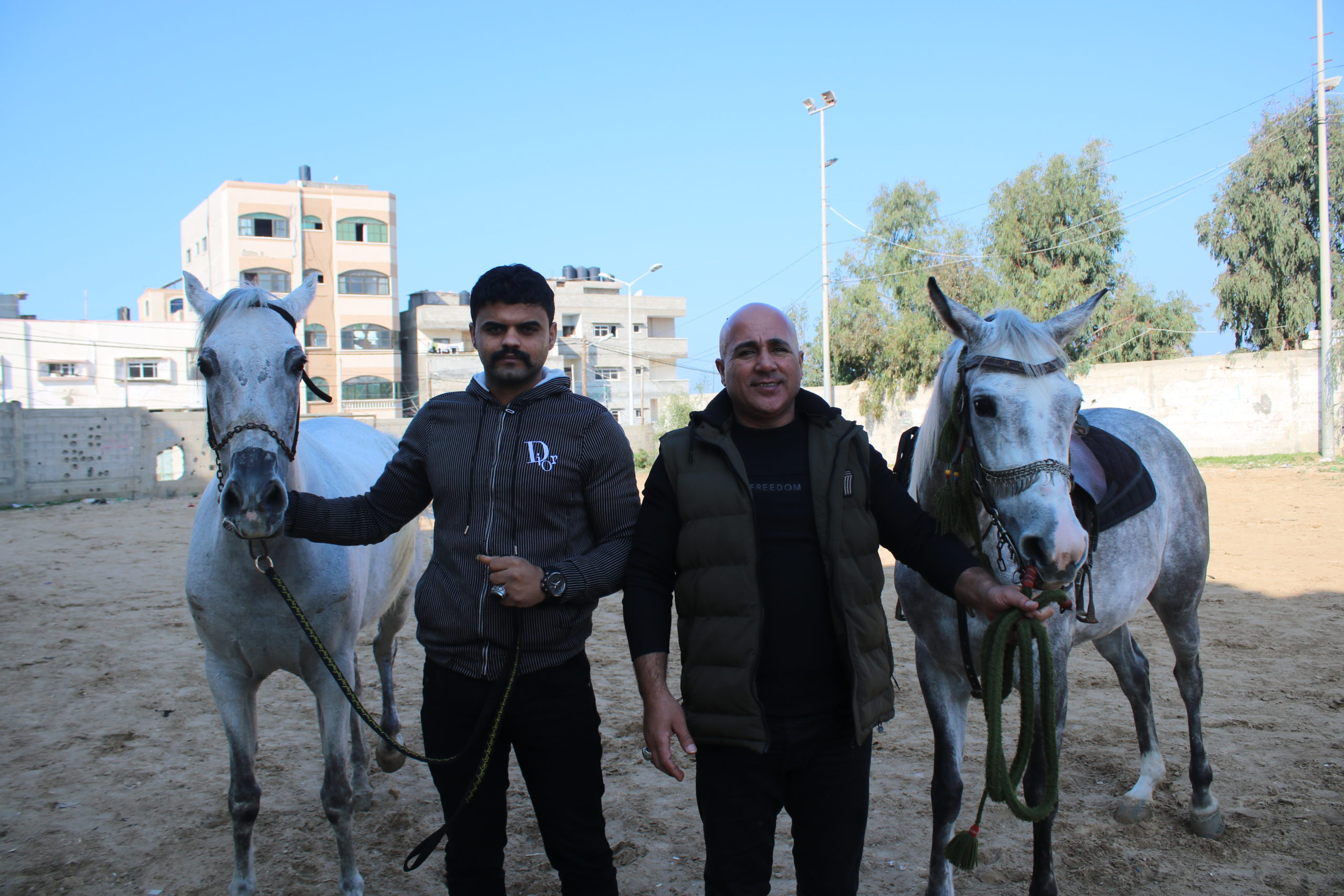
Abu Sharia stated that in 2018 alone, 24 horses died of Mediterranean fever due to the lack of vaccination, which is one of the basic needs of these animals.
The lack of medicine has forced horse owners to try new ways to treat their animals.
“We’ve had to use some human antibiotics for our horses. It’s not ideal, but we would do anything to save them,” Ameed Miqdad said.
According to the veterinarian, Eid Khreis, many horses die every year due to digestive system diseases, which are common and can be treated with minor surgery. However, surgical equipment is not available due to the Israeli blockade.
There is also a shortage of X-ray and ultrasound devices, which are essential for diagnosing horse injuries.
The horses and people of Gaza not only share the suffering of the blockade but also the misery of the repeated Israeli wars.
Many horses were killed or injured by Israeli bombs during the Israeli aggressions, but the suffering does not end with the ceasefire.
According to Khreis, horses are very sensitive animals. The sound of nearby explosions is enough to cause shock or a breakdown in their nervous system, which lasts from 6 to 8 months and can even be permanent. Horses suffering from this condition often harm themselves – and sometimes their owners – as they lose control of their own reaction to any movement or sound around them. They are also unable to participate in any usual activities.
What makes the situation even worse for the horses is that there is a shortage of sedatives due to the Israeli blockade.
Unfortunately, the deteriorating health conditions of the horses in Gaza made it impossible for them to be qualified to participate in international competitions.
Raed Al-Saati, a member of the Palestinian Equestrian Federation, stated that the Israeli crimes against horses in the Gaza Strip are part of a systematic Israeli policy aimed at obliterating the Palestinian cultural identity and preventing Palestine from excelling in international events.
(All Photos: Abdallah al-Naami, The Palestine Chronicle)
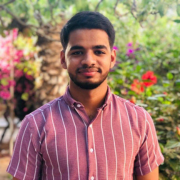
– Abdallah al-Naami is a journalist and photographer living in Gaza. He contributed this article to The Palestine Chronicle.

